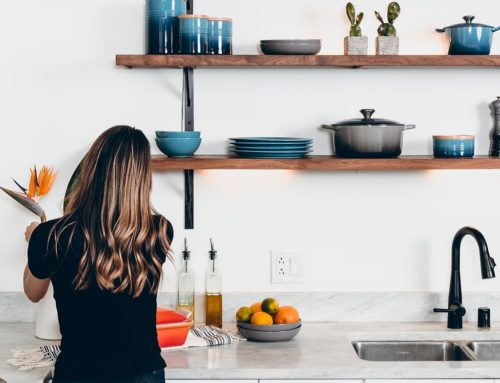Managing finances is not only stressful and complicated, it’s also extremely boring! That said, money is one of life’s necessities and to pay your bills and still have money left over at the end of the month is a liberating feeling. Here’s six tips to help you organise your finances and stress-less about money.
What do you really want?
The first step to getting a grip on your finances is to work out your financial goals. Be specific and write them down. Set some big goals, like buying your own home or saving for retirement. And some smaller goals that will help you with the big ones, like saving for a deposit or paying off credit cards. Remember to review your goals every six months to see if you are still on track.
Make a budget
Budgeting may sound like the ultimate cure for amnesia but it’s well worth it (and will probably help you sleep better at night for all the right reasons). A budget is a plan of the amount of money you expect to receive into your househould (income) and how it is spent (expenditure). If there is more income than expenditure you have a surplus which can be put towards your goals. If the result of your budget is a deficit then you need to either reduce your expenses, or increase your income to keep your head above water.
When putting together your budget, keep receipts and bank statements so you can see how much you spend day to day on things like groceries, power and rent. Don’t forget to include annual costs in your budget such as vehicle licensing and occasional expenses like gifts and holidays. A budget can be made quite easily as a spreadsheet on your computer or simply written down on a sheet of paper.
Tweak that budget until it fits
Once you have your budget on paper (or a spreadsheet), you need to make your income and outgoings fit your financial goals. There are only two ways to do this – either cut back your spending or start with a clean slate and establish new spending habits.
Start by stripping the budget right back to necessities only, like rates, mortgage, insurance, etc – expenses that you have very little control over.
Then, set an allowance for things like petrol, groceries, home maintenance, etc (don’t include spending money). Keep the allowances as tight as possible but still be realistic. If you have a pet and a hungry appetite, $40 a week for groceries isn’t going to work. Be honest with your spending and you’ll find budgeting a lot easier to manage.
With any money left over in the budget, decide how much you would like to save and how much you will have as spending money for non-essentials. If you put a cap on your spending you are more likely to stick to the budget.
Keep working on reducing the allowances; eg, shopping online for your groceries so you don’t have impulse buys, being more energy wise and save on your power bill or unsubscribing from that movie channel that you only watch once a month.

Can you increase your income?
As well as reducing spending, thinking about your finances may give you ideas about how you may be able to increase your income. Nobody likes asking for a pay rise, but there are ways that you can offer your employer the opportunity to pay you more – like taking on more responsibility, undergoing training and development and doing overtime. You can also sell some of your belongings. Everyone has stuff that they no longer need or want. Online auction sites like Trade Me, free ads, garage sales, and car boot sales are a great way to not only make a little bit of money, but to clear some clutter too. You could also consider taking in a lodger or starting a small business from home.
Get money wise with the bank
Choosing to bank electronically, not having a cheque book or cancelling paper statements could all reduce fees. Talk to your bank to find out if a different type of account would reduce your fees. Setting up automatic bill payments from your bank account can not only save you forgetting payments and incurring fees, but many companies will also offer a discount.
If you have more cash in your everyday account than you need straight away, consider transferring some to a high interest savings account. Usually this can be done in a matter of minutes online and the interest will soon mount up.
If you have a mortgage, shop around for the best rate but ensure you know about all the fees and penalties that will apply to any new arrangements. Making mortgage payments bigger than those that are due can reduce the amount of interest you pay and therefore reduce the term of the loan. So if you can comfortably afford to do so, pay more.
Break out of the debt cycle
If you can’t afford to pay cash for something ask yourself if you really need the item you’re buying.
If you have short-term debts (credit cards, hire purchases, overdraft), consider paying them off before you start saving. The best strategy is to focus on paying off the form of credit with the highest interest rate first. Always attempt to make more than the minimum payment to clear those debts faster.
Be wary of ‘interest-free’ offers. Unless you are disciplined in paying off the balance before the end of the interest-free period you could end up paying a lot more through high interest rates that are applied to any amount not paid off at the end of the term.
If you need to borrow money or get credit, shop around for the best rate. For instance, a personal loan from the bank may work out better than increasing your credit card balance. Always check the fees and charges in the small print before you sign your life away.
Create a financial safety-net
Once you’ve learnt to stick to your budget, you’ve paid off your short-term debts and you’re seeing a surplus it’s time to create a safety net for you and your family. It’s a good idea to save enough money to cover say three or four months of expenditure as you never know when the household income may take an unexpected hit due to redundancy or illness. This way you won’t have to borrow money while looking for a new job or getting back to health.
See more:
 Written by Steph Graham
Written by Steph Graham
The girl you want by your side during any major life event, Steph is a decorating boss and a baking Queen. You’ll usually find her getting tipsy at a bottomless brunch, playing basketball and Insta-stalking the Hemsworth brothers.
Favourite 90s rap song: No Diggity by Blackstreet






If you dont have cash to pay for it…do you really need it…..loved this line, really resonated with me… With online shopping and things like facebook market its making it waaayyyy too easy for a spender like me to justify the over spending…i need to write that sentence down and leave it everywhere i go!!!
Another great list! Having a budget is a good cure for financial insomnia! Have had that one before!! I find it really important to be honest with myself too. I might think I have allowed myself enough fun money, but usually I go a bit over and then I beat myself up over money I was always going to spend